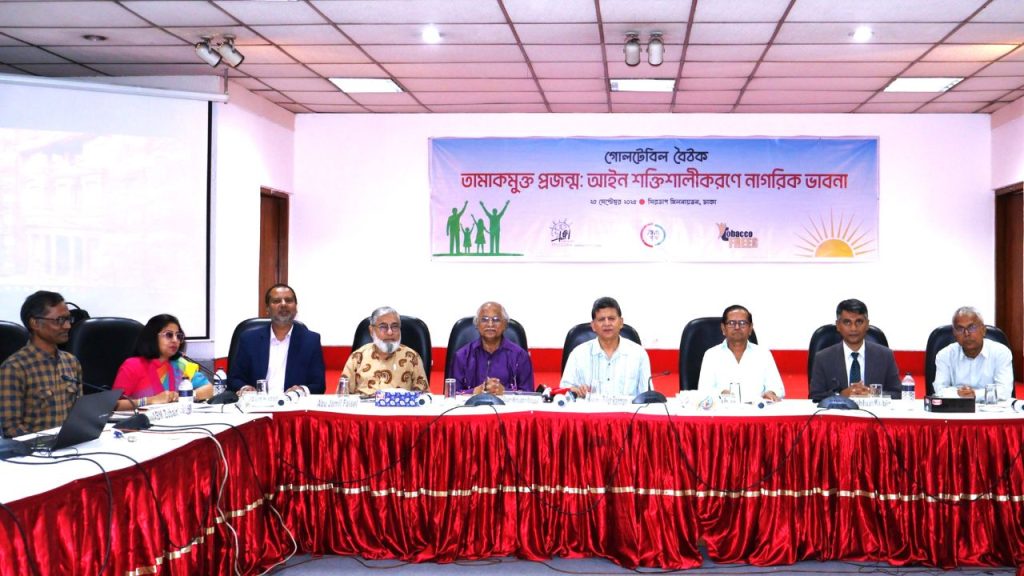Experts have urged the government to strengthen tobacco control legislation, warning that tobacco use poses a major barrier to achieving Sustainable Development Goals (SDGs) in Bangladesh and contributes heavily to non-communicable diseases (NCDs).
They made the call on Saturday at a roundtable titled “Building a Tobacco-Free Generation: Citizens’ Perspectives on Strengthening TC Law,” jointly organised by PROGGA (Knowledge for Progress) and Anti-Tobacco Media Alliance (ATMA) at CIRDAP Auditorium in Dhaka.
Speakers said tobacco undermines SDG Target 3.4, which aims to cut premature deaths from NCDs by one-third by 2030.
Currently, 71% of deaths in Bangladesh are caused by NCDs, including cardiovascular diseases and cancer, with tobacco as a major contributor. On average, 442 people die every day from tobacco-related causes.
Bangladesh has nearly 50 million young people aged between 15 and 35, and experts stressed the need to protect this demographic by adopting a strong, industry-interference-free tobacco control law and ensuring its strict enforcement.
They also pointed out that tobacco hinders multiple development goals, including health, poverty reduction, food security, education, gender equality, environment conservation and climate resilience.
The Ministry of Health and Family Welfare initiated amendments to the Smoking and Tobacco Products (Control) (Amendment) Act 2013 in 2021, with a draft now under review by an advisory committee.
However, speakers alleged that tobacco companies are actively trying to obstruct the process.
Former caretaker government adviser and economist Hossain Zillur Rahman, chief guest at the event, said, “The harms of tobacco are multifaceted. Since the current government is undertaking reforms in many sectors, the amendment of the tobacco control law would be a signature reform.”
Bangladesh Cancer Society President Golam Mohiuddin Faruque, who moderated a session with cancer victims, said, “We have listened to their woes. We do not want to hear such dreadful experiences anymore.
“To safeguard the future generation, the draft amendment needs approval as soon as possible.”
Public health expert and president-elect of the Public Health Association Abu Jamil Faisel said: “There is no alternative to strengthening tobacco control law to deal with the prevalence of NCDs. I urge the government to ensure quick passage of the amendment.”
Bangladesh Pratidin Editor Abu Taher said the media has played a strong role in supporting the amendment process and must continue. BIISS Research Director Mahfuz Kabir stressed that “the amendment of tobacco control law has no relation with potential loss in revenue inflow.
“To protect public health, the process must be free from tobacco industry interference.”
Public health expert and sports consultant Anupam Hossain added, “E-cigarettes and vaping are equally harmful as traditional tobacco products. These products must be banned at all cost.”
Other participants included ATMA Convenor Mortuza Haider Liton, PROGGA Executive Director AMB Zubair, along with representatives of anti-tobacco organisations. The session was hosted by ATMA Co-convener Nadira Kiron, while Hasan Shahriar, Head of Programmes at PROGGA, presented the key findings.
The draft amendment includes eliminating designated smoking areas in all public places and transport, banning tobacco display at points-of-sale, prohibiting corporate social responsibility activities by tobacco companies, ending the sale of loose tobacco, and banning production, import and marketing of e-cigarettes and heated tobacco products.


